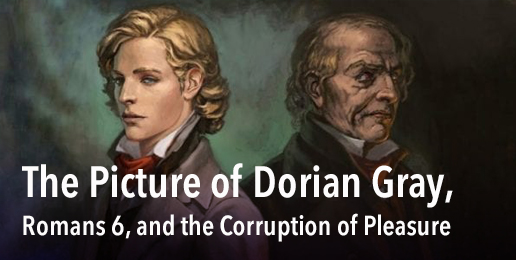
The titular character in The Picture of Dorian Gray is a charming young man whose beauty is only enhanced by his innocence.

Unfortunately, he meets a man named Henry Wotton who introduces Dorian to the idea of hedonism, or living for selfish, sensual pleasures, and sparks in him a fear of losing his youth and beauty. Out of this fear, Dorian wishes for his portrait to take the effects of his sinful life and age so he can remain young and beautiful.
Soon, the once-innocent Dorian Gray has stained himself with every sin imaginable in pursuit of pleasure.
His past is stained with whispers, unexplained suicides, and ruined reputations. Every one of them somehow paints itself onto the picture of Dorian Gray, haunting him with the knowledge that he has ruined his soul. Eventually Dorian thinks that if he destroys the painting, he won’t have to worry about it anymore, so he stabs the picture – and ends up killing himself.
Dorian’s pursuit of selfish pleasure ruined him, eventually leading to his literal death.
The Picture of Dorian Gray illustrates perfectly an important truth that our culture has completely forgotten: living for selfish, sinful “pleasures” will only ever lead to death. Romans 6:16 says,
“Do you not know that if you present yourselves to anyone as obedient slaves, you are slaves of the one whom you obey, either of sin, which leads to death, or of obedience, which leads to righteousness?”
Like Dorian, our culture has gleefully given itself over to sin in its pursuit of pleasure, and like Dorian, this pursuit of pleasure is rapidly leading to societal death.
Think of the sheer amount of cannabis shops inhabiting street corners or the significant rise in obesity. Think of how our society celebrates sexual deviancy in all its forms and is seeking to push depravity further. Think of what “entertainment” has become in the past decade and the gambling scandals that fill the news. Think of how many unborn babies have been brutally killed for the sake of something as selfish as preserving a specific lifestyle.
We are all slaves of who or what we obey, and our culture is a slave to sin.
Collectively, society knows the pleasures it is pursuing are sinful. A perfect picture of this appears in the concluding half of The Picture of Dorian Gray:
“He knew that he had tarnished himself, filled his mind with corruption and given horror to his fancy; that he had experienced a terrible joy in being so; and that of the lives that had crossed his own, it had been the fairest and most full of promise that he had brought to shame.”
This world has had to fight tooth and nail to make these things appear right or normal, and they’ve had to constantly beat back a moral standard that comes from Christianity to make any headway in society.
Why create the “Shout your Abortion” campaign or celebrate Pride Month other than to loudly demand the world congratulate you on freeing yourself as regards righteousness?
Romans 1 shows the tragic outcome of such an attitude in verse 32:
“Though they know God’s righteous decree that those who practice such things deserve to die, they not only do them but give approval to those who practice them.”
I think our world, and especially the West, has a fear of pain. We’ve become so used to comfort and instant gratification that when pain, shame, guilt, or sadness creep in, we try to find a way to make those negative emotions go away instead of facing them and realizing that life isn’t perfect all the time.
For many people, this discomfort results in turning to those earthly pleasures—sex, alcohol, drugs, cutting, suicide, abortion, “switching” genders, binge eating, or even scrolling social media—to “fix” the negative emotions for a time. But none of these things lead anywhere other than to death – spiritual death as well as (often) physical death.
This is where the gospel comes in.
Romans 6 ends with,
“For when you were slaves of sin, you were free in regard to righteousness. But what fruit were you getting at that time from the things of which you are now ashamed? For the end of those things is death. But now that you have been set free from sin and have become slaves of God, the fruit you get leads to sanctification and its end, eternal life. For the wages of sin is death, but the free gift of God is eternal life in Christ Jesus our Lord” (Romans 6:20-23).
The pursuit of earthly pleasures and the quest to avoid pain will ultimately lead to slavery to sin, which in turn leads to death.
It’s only through Christ that we can be set free from sin because He died a horrible, tortuous death and rose again to defeat it, taking the punishment our sin deserves.
True joy, fulfillment, and life are only ever found through slavery to righteousness, not to sinful pleasure.
























